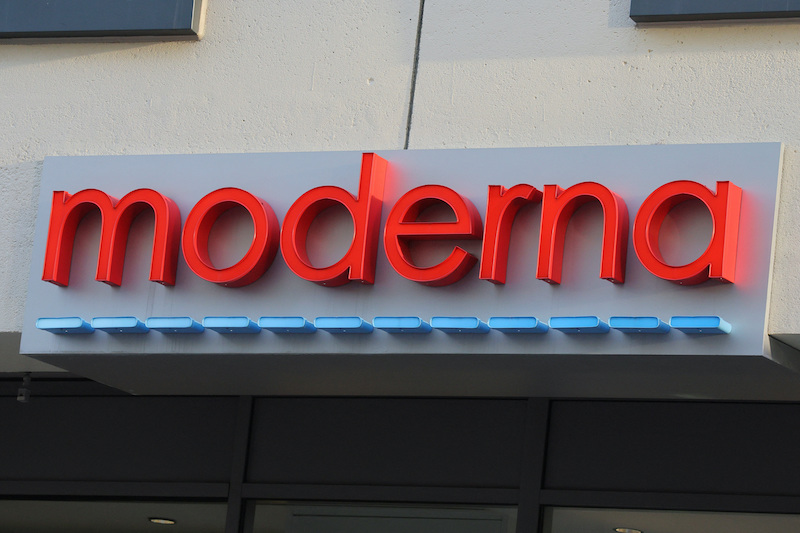Moderna’s refusal to give China the recipe of its Covid vaccine led to the collapse of talks on its sale there, the Financial Times reported on Saturday.
The US pharmaceutical company rejected China’s request to hand over the core intellectual property on development of its mRNA vaccine because of commercial and safety concerns, it said.
The newspaper report, which cited people involved in negotiations that took place between 2020 and 2021, said the vaccine maker is still “eager” to sell its product in China.
The company, based in Cambridge in Massachusetts, had “given up” on its previous efforts to access the Chinese market because of China’s demand that it hand over the technology as a prerequisite for selling in the country, the report said.
Moderna did not immediately respond to a request for comment.
China has not approved any foreign Covid-19 vaccines and relies on several domestically developed shots, which reports say have been less effective in preventing the spread of Covid variants.
The World Health Organisation said in August: “The Moderna vaccine after two doses and a first booster dose has been shown to have very high effectiveness against severe disease, hospitalizations and death, and modest effectiveness against symptomatic illness.”
In September, Moderna chief medical officer Paul Burton said the company was keen to collaborate with China on supplying its mRNA-based Covid-19 vaccines to the country.
“We would certainly be very eager to collaborate with China if they felt that there was a need for a vaccine there,” Burton had told a media briefing for reporters in Asia. “Currently, there is no activity going on, but we’d be very open to it.”
Indonesia Approves Chinese Vaccine
Meanwhile, Indonesia said on Friday it has granted emergency use approval to an mRNA Covid vaccine developed by a Chinese company, becoming the first country, ahead of even China, to do so.
Indonesia‘s food and drugs agency (BPOM) greenlighted the use of Walvax Biotechnology’s mRNA vaccine, which has been in development for more than two years and targets the original strain of the coronavirus.
The approval comes as somewhat of a surprise as Walvax, which has been conducting large late-stage trials of the vaccine in several countries including Indonesia, Mexico and China, has yet to publish efficacy readings that would show how well it can reduce the risk of Covid cases and deaths.
Penny Lukito, head of the agency, told reporters the vaccine, now known as AWcorna, was 83.58% effective against wild-type coronavirus strains considered common and normal, though she added that its efficacy drops to 71% against moderate cases of the highly contagious Omicron variant.
Walvax declined to comment. Share reaction for the Chinese company was muted, with the stock rising just 0.5%.
Indonesia has previously granted emergency use approvals to other Chinese COVID shots before detailed efficacy data became available, though that was earlier on in the pandemic when Western-made products were in short supply.
China has several mRNA candidates in development but the Walvax vaccine is the only candidate in large late-stage clinical trials.
It was not immediately clear how widely the newly approved shot will be used in Indonesia, where more than 63% of its population is fully vaccinated. Health experts around the world also recommend using so-called bivalent Covid vaccines, which target both the original strain and the Omicron variant.
Indonesia also uses mRNA COVID vaccines made by Pfizer and BioNTech and Moderna, but the AWcorna shot has a longer shelf life, remaining stable at 2 to 8 degrees Celsius for at least six months, according to its researchers.
That could make the vaccine ideal for Indonesia, an archipelago of thousands of islands, and other countries which have poor logistics in remote areas.
BPOM said the vaccine‘s less stringent storage requirements suited Indonesia, a tropical country, and it could be used as both a primary and a booster shot for adults.
The vaccine will be locally produced by an Indonesian firm, Etana Biotechnologies. Etana declined to say how many doses of AWcorna it plans to produce, but its production capacity is 100 million doses per year, spokesperson Lusy Andriani said.
Dicky Budiman, an Indonesian epidemiologist at Australia’s Griffith University, said producing AWcorna at home via technology transfer would help the country develop sufficient expertise as it seeks to prepare for new variants and possible shortages of vaccines.
“It’s important and strategic,” he said.
Walvax co-developed the vaccine with Suzhou Abogen Biosciences and a Chinese military-backed institution. Walvax and Suzhou Abogen are also separately working on their own mRNA candidates that target coronavirus variants.
For its part, China has not approved any Western-made Covid shots and its approved vaccine portfolio does not yet include vaccines that specifically target the Omicron variant.
- Reuters with additional editing by Jim Pollard
ALSO SEE:
























